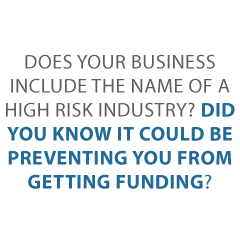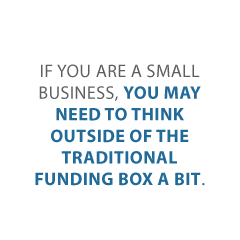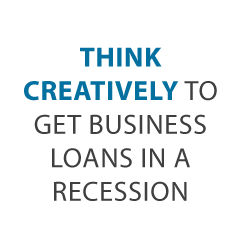
Accounts Receivable Funding
Check Out Accounts Receivable Funding
Are you looking for accounts receivable funding? Even though accounts receivable funding is based on receivables – more on that later – it still pays to look at fundability. Plus we are covering similar alternatives today.
This way in case it turns out that accounts receivable funding is off the table for you and your business, you would still be covered.
Fundability
Fundability is the ability of a business to get funding. It essentially covers all the points a lender or credit provider will be looking at when they’re trying to figure out if you’ll pay back a loan or credit extended to you. These include factors you probably haven’t thought about or might think aren’t so important. But they are!
Your Business name
Does your business include the name of a high risk industry? Did you know it could be preventing you from getting funding? It doesn’t have to be this way. You don’t have to include the name of your industry in your business name. There’s nothing deceptive or illegal or otherwise wrong about calling a business Chico’s rather than Chico’s Bail Bonds.
Note: if you change your business name, be sure to change it everywhere. This means you change it in these places, among others: incorporation documents, licenses, and your records with the business CRAs (D&B, Experian, and Equifax)
It’s best to copy/paste this information. Do not chance making an error by typing it by hand. This is because differences will be interpreted as fraud by lenders and credit providers. Keep records of where your business name is, so, you can be sure you’ve caught everything.
NAICS code
You choose your business’s NAICS code. NAICS industry codes define businesses based on the activities in which they are primarily engaged. The NAICS puts out a list of high-risk and high-cash industries. Higher risk industries include casinos, pawn shops, and liquor stores. If more than one code would apply, there is nothing deceptive, illegal, or wrong with using a less risky one.
The IRS, lenders, banks, insurance companies, and business CRAs use NAICS codes. They are trying to determine if your business is in a high-risk industry classification. So, you could get a denial for a loan or a business credit card based on your business classification. Some codes can trigger automatic turn-downs, higher premiums, and reduced credit limits for your business. See naics.com/search.
Demolish your funding problems with 27 killer ways to get cash for your business.
Business Entity type
To get financing or credit for your business you must have a business entity. A corporation or LLC gives you more credibility in many cases. It also helps you reduce your liability. And it separates you from your business. It makes the business a separate legal entity. Make sure your entity is set up in the same state as your business address.
Your EIN
Your business must have a Federal Tax ID number (EIN). Just like you have a Social Security Number, your business has an EIN. Your Tax ID number is used to open a bank account and to build a business credit profile. Take the time to verify all agencies, banks, and trade credit vendors have your business listed with the same Tax ID number.
Your Business Address
Your business address has to be a real brick and mortar building. It must be a deliverable physical address. This should not be a home address or a PO Box. Don’t use UPS mailing addresses. Some lenders will not approve and fund unless this criterion is met.
Your Business Phone Number
A cell or home phone number as your main business line could get you flagged as un-established – but VOIP is okay. Do not give a personal cell phone or residential phone as the business phone number. Your phone number must be listed with 411 for most credit issuers and lenders to approve you. Check your record to see if you’re listed and make sure your information is accurate. No record? Then use ListYourself.net to get a listing. Business phone number should be toll-free (800 exchange or comparable).
Your Business Licensing
Make sure you have the proper licensing for your corporation. And make sure the address on your licenses is the same as all other documents. Contact State, County, and City Government offices, and see if there are any required licenses and permits to operate your type of business. Being licensed also builds credibility in your business, which can help you get more customers.
Your Business Website and Email
You need a company email address for your business. Email must be on the same domain as your website. This usually comes with a website domain provider such as GoDaddy or Host Gator. It is not just professional; it also greatly helps your chances of getting approval from a credit provider. Do not use Yahoo, AOL, Gmail, Hotmail, or similar kinds of email.
Demolish your funding problems with 27 killer ways to get cash for your business.
Accounts Receivable Funding
You can use outstanding account receivables as collateral for financing. Receivables should be with the government or another business. If you also have purchase orders, you can get financing to have those filled. You won’t need to use your cash flow to do so. Get an accounts receivable credit line with rates of less than 1% with no consumer credit requirement. Receivables should be with the government or another business.
Accounts Receivable Funding: Terms and Qualifying
Use your outstanding account receivables for financing. Get as much as 80% of receivables advanced ongoing in less than 24 hours. Remainder of the accounts receivable are released once the invoice is paid in full. Factor rates as low as 1.33%. you can get an accounts receivable credit line with rates of less than 1% with no consumer credit requirement.
For an Alternative to Accounts Receivable Funding, Try Our Credit Line Hybrid
A credit line hybrid is a form of unsecured funding. Our credit line hybrid has an even better interest rate than a secured loan. Get some of the highest loan amounts and credit lines for businesses. Get 0% business credit cards with stated income. These report to business CRAs. You can build business credit at the same time. This will get you access to even more cash with no personal guarantee.
Credit Line Hybrid: Terms and Qualifying
You need a good credit score or a guarantor with good credit to get an approval (a FICO score of at least 680). No financials required. You can often get a loan of five times the amount of current highest revolving credit limit account. This is up to $150,000.
For a Similar Kind of Funding, Try Purchase Order Financing
This is advanced to a business with a large purchase order or contract but cannot fulfill it. Lender then loans the funds necessary to complete the order and charges a percentage for the service. Then the company can fulfill its order or contract. The difference between purchase order and accounts receivable funding is:
- Purchase order financing involves a company lending you money to fulfill purchase orders
- Accounts receivable funding involves a company buying your outstanding invoices
Purchase Order Financing: Terms and Qualifying
Terms are for Credit Suite purchase order financing. For approval, lenders will typically review your outstanding purchase orders that need to be filled. If the purchase orders are valid and the suppliers you are dealing with are credible, you can be approved regardless of personal credit history. Rates typically range from 1-4%. In some instances, you can get 95% of your purchase order financed.
Demolish your funding problems with 27 killer ways to get cash for your business.
Consider Cash Flow Financing as Well
A loan made to a company is backed by a company’s expected cash flows. A company’s cash flow is the amount of cash that flows in and out of a business, in a specific period. Cash flow financing (or a cash flow loan) uses generated cash flow as a means to pay back the loan.
Cash Flow Financing: Terms and Qualifying
Often you will need to have a few years in business. You may need to meet a certain minimum credit score requirement. You will need to prove historical cash flow, and present your accounts receivables and accounts payables, so the lender can determine how much to loan to your business.
SBA Seasonal Line
Advances against anticipated inventory and accounts receivables, or in some cases associated increased labor costs. It is meant to help seasonal businesses. It can be revolving or non-revolving.
SBA Seasonal Line: Terms and Qualifying
Get loans to $5 million. Qualification requirements are the same as with other SBA programs. The maximum maturity on this CAPLine loan is 10 years. Holders of at least 20% ownership in the applicant business must guarantee the loan.
So How Do You Choose?
This is an enormous buffet of business funding choices! But how do you select the one(s) that’s best for your particular situation? This is where our Advisory Team comes in extremely handy. Or help yourself with our Business Credit Builder. It’s your choice. But it all starts with business credit.
Accounts Receivable Funding: Takeaways
There are all sorts of amazing ways to get business funding. Accounts receivable funding and similar funding types are just the tip of the iceberg. You can find the best financing which fits your circumstances, including your strengths in areas like:
- Personal credit
- Collateral or
- Cash flow
The post Accounts Receivable Funding appeared first on Credit Suite.









